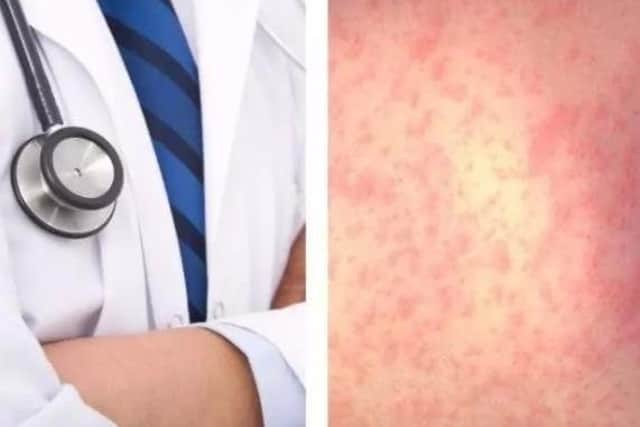Measles: World Health Organisation issues warning over outbreak in Europe - symptoms and treatments


The World Health Organisation (WHO) has issued a fresh warning over measles after an almost 45-fold rise in cases across Europe.
Experts from the organisation said Europe is seeing an “alarming rise” in the spread of the disease, which has “accelerated in recent months”. Some 42,200 cases were reported by member states in 2023, almost 45 times the 941 cases in 2022.
Advertisement
Hide AdAdvertisement
Hide AdTwo in five cases were in children aged one to four, while one in five were among people aged 20 and over. The rising trend is expected to continue if people do not vaccinate their children against the disease, WHO said.
It comes after the UK launched its own campaigns to encourage parents to get the measles, mumps and rubella (MMR) vaccine for their children.
Measles can lead to serious complications, lifelong disability and death. It can affect the lungs and brain and cause pneumonia, meningitis, blindness and seizures.
Dr Hans Kluge, WHO regional director for Europe, said: "Vaccination is the only way to protect children from this potentially dangerous disease. Urgent vaccination efforts are needed to halt transmission and prevent further spread.
Advertisement
Hide AdAdvertisement
Hide Ad"It is vital that all countries are prepared to rapidly detect and timely respond to measles outbreaks, which could endanger progress towards measles elimination."
WHO said that sliding vaccination rates were to blame, but more people were now travelling abroad after Covid-19, increasing the risk of cross-border disease transmission and spread within communities. On Friday, the head of the UK Health Security Agency (UKHSA) warned the UK is on a “trajectory for everything getting much worse” when it comes to measles spreading.
You should ask for an urgent GP appointment or get help from NHS 111 if you think you or your child may have measles, or have been in close contact with someone who has measles and are either pregnant or have a weakened immune system.
Comment Guidelines
National World encourages reader discussion on our stories. User feedback, insights and back-and-forth exchanges add a rich layer of context to reporting. Please review our Community Guidelines before commenting.
